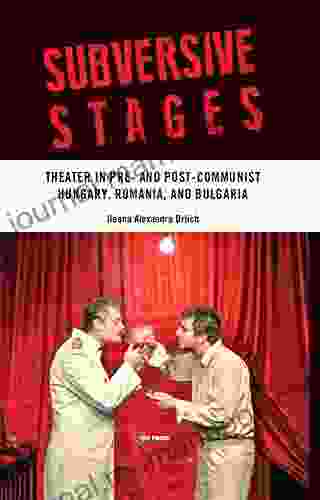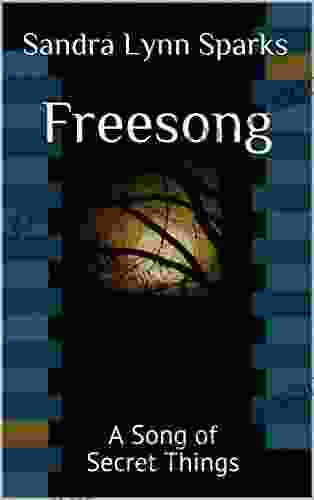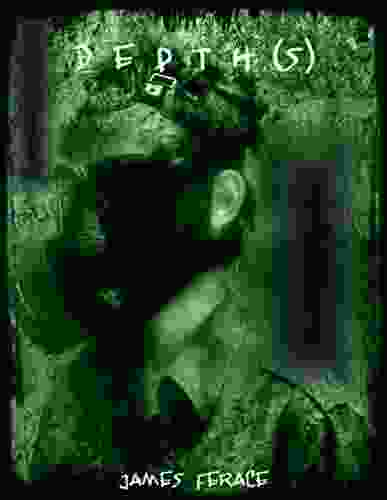The Evolution of Theater in Pre and Post-Communist Hungary, Romania, and Bulgaria: A Journey Through Censorship, Innovation, and Artistic Freedom

The theater has long been a powerful force for social and political commentary, a platform for expressing dissent, and a catalyst for change. In the countries of Eastern Europe, where the grip of communism was once tight, the theater played a particularly significant role in shaping the cultural and political landscapes.
The Pre-Communist Era
Prior to the establishment of communist regimes in Hungary, Romania, and Bulgaria, theater flourished in these countries. In Hungary, Budapest was a thriving cultural hub, home to a vibrant theater scene that embraced both traditional and experimental forms. In Romania, the National Theater of Bucharest was a prestigious institution, known for its high-quality productions and its role in promoting Romanian culture. In Bulgaria, Sofia's National Theater played a similar role, fostering a love of theater and showcasing the talents of Bulgarian actors, directors, and writers.
4.3 out of 5
| Language | : | English |
| File size | : | 723 KB |
| Text-to-Speech | : | Enabled |
| Screen Reader | : | Supported |
| Enhanced typesetting | : | Enabled |
| Print length | : | 355 pages |
Censorship Under Communism
With the advent of communism, the theater in Hungary, Romania, and Bulgaria fell under the heavy hand of censorship. The authorities sought to control all aspects of cultural expression, including the theater. Plays were vetted for politically objectionable content, and those that were deemed too critical of the regime were banned. Artists were forced to self-censor, fearing reprisals from the government.
Artistic Innovation Despite Censorship
Despite the constraints of censorship, artists in Hungary, Romania, and Bulgaria found ways to express themselves creatively and to challenge the status quo. They developed subtle forms of resistance, using allegory, symbolism, and other techniques to convey their messages. In Hungary, the playwright István Örkény became known for his absurdist plays that satirized the absurdities of communist society. In Romania, the playwright Eugene Ionesco also used absurdism to explore the existential dilemmas of life under communism. In Bulgaria, the theater director Lyubomir Tsvetkov used his productions to promote social justice and to critique the government's policies.
The Post-Communist Era
With the collapse of communism in the late 1980s and early 1990s, the theater in Hungary, Romania, and Bulgaria entered a new era. Censorship was lifted, and artists were free to express themselves without fear of reprisal. The theater became a space for open dialogue and experimentation, and a new generation of playwrights, directors, and actors emerged.
Emergence of New Perspectives
The post-communist era brought about a proliferation of new perspectives in the theater. Playwrights explored themes of freedom, identity, and the search for meaning in a rapidly changing world. Directors experimented with new forms of storytelling and stagecraft, pushing the boundaries of theatrical expression. Actors embraced the opportunity to portray complex and challenging characters, often drawing on their own experiences of living under communism.
Challenges and Opportunities
While the post-communist era brought about greater freedom and artistic expression, it also presented new challenges for the theater in Hungary, Romania, and Bulgaria. Economic instability and budget cuts threatened the survival of many theaters, and artists struggled to adapt to the new market-driven environment. However, these challenges also created opportunities for innovation and collaboration. Theaters found new ways to engage with audiences, such as through outreach programs and community-based projects. Artists from different countries began working together, sharing ideas and creating new forms of theater that transcended national boundaries.
The theater in Hungary, Romania, and Bulgaria has undergone a remarkable transformation since the fall of communism. Censorship has been lifted, and artists are free to express themselves without fear. New perspectives have emerged, and the theater has become a vital space for social and political commentary, as well as a source of entertainment and inspiration. While challenges remain, the theater in these countries continues to thrive, offering a vibrant and dynamic reflection of the region's past, present, and future.

4.3 out of 5
| Language | : | English |
| File size | : | 723 KB |
| Text-to-Speech | : | Enabled |
| Screen Reader | : | Supported |
| Enhanced typesetting | : | Enabled |
| Print length | : | 355 pages |
Do you want to contribute by writing guest posts on this blog?
Please contact us and send us a resume of previous articles that you have written.
 Top Book
Top Book Novel
Novel Fiction
Fiction Nonfiction
Nonfiction Literature
Literature Paperback
Paperback Hardcover
Hardcover E-book
E-book Audiobook
Audiobook Bestseller
Bestseller Classic
Classic Mystery
Mystery Thriller
Thriller Romance
Romance Fantasy
Fantasy Science Fiction
Science Fiction Biography
Biography Memoir
Memoir Autobiography
Autobiography Poetry
Poetry Drama
Drama Historical Fiction
Historical Fiction Self-help
Self-help Young Adult
Young Adult Childrens Books
Childrens Books Graphic Novel
Graphic Novel Anthology
Anthology Series
Series Encyclopedia
Encyclopedia Reference
Reference Guidebook
Guidebook Textbook
Textbook Workbook
Workbook Journal
Journal Diary
Diary Manuscript
Manuscript Folio
Folio Pulp Fiction
Pulp Fiction Short Stories
Short Stories Fairy Tales
Fairy Tales Fables
Fables Mythology
Mythology Philosophy
Philosophy Religion
Religion Spirituality
Spirituality Essays
Essays Critique
Critique Commentary
Commentary Glossary
Glossary Bibliography
Bibliography Index
Index Table of Contents
Table of Contents Preface
Preface Introduction
Introduction Foreword
Foreword Afterword
Afterword Appendices
Appendices Annotations
Annotations Footnotes
Footnotes Epilogue
Epilogue Prologue
Prologue Rockridge Press
Rockridge Press John Pfeiffer
John Pfeiffer Vivian Arend
Vivian Arend Autumn Jones Lake
Autumn Jones Lake E R Yescombe
E R Yescombe Heidi Betts
Heidi Betts Tina Willer
Tina Willer Boyd Craven Iii
Boyd Craven Iii S Green
S Green Joann Cleland
Joann Cleland Einat Admony
Einat Admony Gustave Flaubert
Gustave Flaubert Alessandra Lopez Y Royo
Alessandra Lopez Y Royo Jason Conley
Jason Conley Guy De Maupassant
Guy De Maupassant Kassandra Montag
Kassandra Montag Paul Temporal
Paul Temporal Ken Johns
Ken Johns Maria Isabel Pita
Maria Isabel Pita Clyde E B Bernhardt
Clyde E B Bernhardt
Light bulbAdvertise smarter! Our strategic ad space ensures maximum exposure. Reserve your spot today!
 John ParkerFollow ·10.5k
John ParkerFollow ·10.5k Grant HayesFollow ·4.7k
Grant HayesFollow ·4.7k Ernest PowellFollow ·6.5k
Ernest PowellFollow ·6.5k Drew BellFollow ·5.6k
Drew BellFollow ·5.6k Wade CoxFollow ·17.7k
Wade CoxFollow ·17.7k Adrian WardFollow ·2.5k
Adrian WardFollow ·2.5k Robert ReedFollow ·18.8k
Robert ReedFollow ·18.8k Donald WardFollow ·15.7k
Donald WardFollow ·15.7k
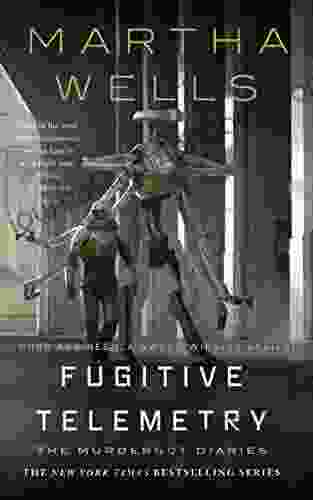
 Alexandre Dumas
Alexandre DumasFugitive Telemetry: Unraveling the Secrets of the...
In the realm of...
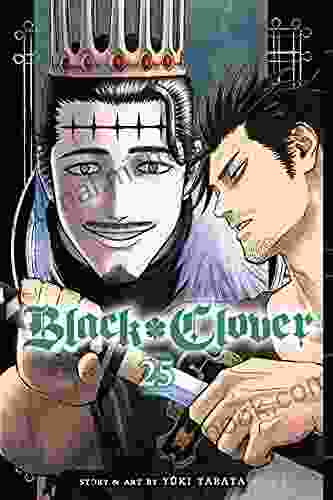
 Caleb Carter
Caleb CarterBlack Clover Vol 25: Humans and Evil - A Journey into the...
Unveiling the Sinister Forces Black...

 Israel Bell
Israel BellHow to Make Offers So Good People Feel Stupid Saying No
In today's competitive business environment,...

 Simon Mitchell
Simon MitchellWrath of Hades: The Children of Atlantis
An Epic Tale of...

 Percy Bysshe Shelley
Percy Bysshe ShelleyStrengthen Your Immune System: Fight Off Infections,...
What is the...

 Clark Bell
Clark Bell10 Things I Wish Someone Had Told Me Earlier
As we navigate through life, we accumulate a...
4.3 out of 5
| Language | : | English |
| File size | : | 723 KB |
| Text-to-Speech | : | Enabled |
| Screen Reader | : | Supported |
| Enhanced typesetting | : | Enabled |
| Print length | : | 355 pages |


